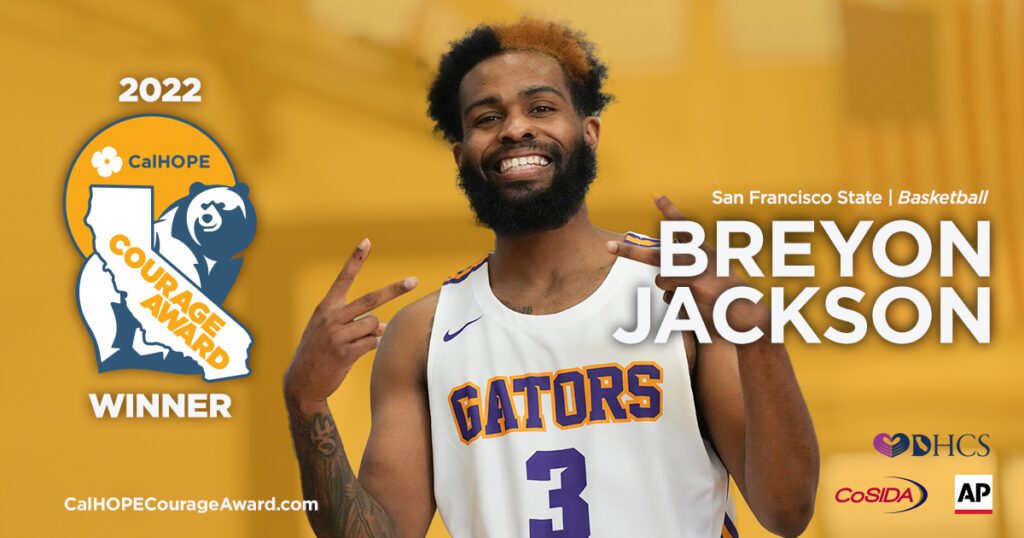Jackson, a 6-foot-7-inch junior forward for the SFSU men’s basketball team, has had a challenging coast-to-coast journey since graduating from high school in 2017. After a successful freshman season at Cloud County Community College in Concordia, Kansas, he transferred to Long Beach State. However, after just eight games, an injury forced him to miss the remainder of the 201819 season. Then, after a series of mental health challenges brought on by losing three of his childhood friends to gun violence and other family hardships, he was forced to leave Long Beach State after just 10 games of the 2019-20 season. Jackson, whose father had died during his freshman season, chose to help his family by transferring to West Virginia State University (WVSU) to be closer to home. The pandemic limited practice time and disrupted his attempts to travel between college and home. These travels were made more difficult because his mother and brother were at risk of becoming infected by COVID, forcing him to quarantine with a relative.
By the time basketball practice resumed at WVSU, there was no longer a spot for him on the team. He spent the remainder of 2020 living in his car. He also attended open gyms hoping to earn a scholarship. When this proved unsuccessful, he sat out the season to work on his game and to deal with his mental wellness. He transferred in 2021 to SFSU, where he thrived. Forced to sit out the first half of the season because he was unable to track down his college transcripts in time for the regular season, he played the final 13 games for the Gators, averaging 5.9 points and 4.4 rebounds as a key contributor off the bench. An international relations major, he hopes to work in the NBA or with NBA Cares, NBA Africa, or the NBA Foundation to use basketball to help make the world a better place and to destigmatize mental health.
“I’m grateful, and I appreciate this recognition,” said Jackson. “Mental health is undervalued where I grew up. As a result, I didn’t know that it was OK to not be OK and that it was OK to ask for help. I want to use this opportunity to become a mental health advocate for everyone, especially for Black men and Black communities. I hope to set an example for my community on how they can improve their mental health and well-being, whether it’s meditating, seeking therapy, prayer, or even a new hobby. I want people to know that taking care of your mental health is important.”
Breyon Jackson, San Francisco State


